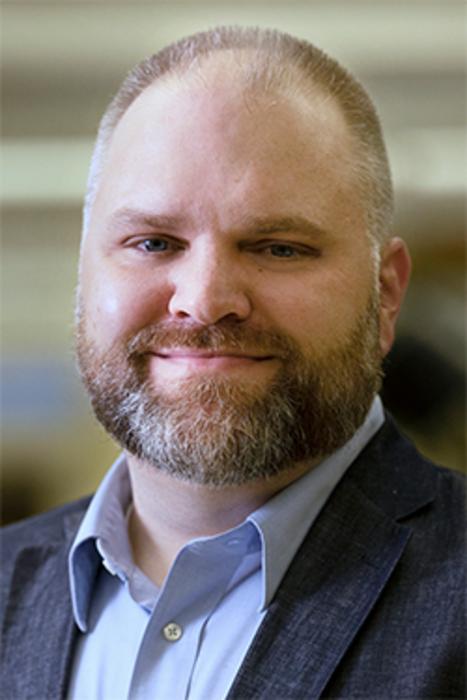CHAPEL HILL, N.C. – The lungs were once at the forefront of SARS-Cov-2 research, but as reports of organ failure and other serious complications poured in, scientists set out to discover how and why the respiratory virus was causing serious damage to the body’s major organs, including the lungs.

Credit: UNC Department of Pharmacology
CHAPEL HILL, N.C. – The lungs were once at the forefront of SARS-Cov-2 research, but as reports of organ failure and other serious complications poured in, scientists set out to discover how and why the respiratory virus was causing serious damage to the body’s major organs, including the lungs.
An interdisciplinary COVID-19 International Research Team (COV-IRT), which includes UNC School of Medicine’s Jonathan C. Schisler, PhD, found that SARS-CoV-2 alters mitochondria on a genetic level, leading to widespread “energy outages” throughout the body and its major organs. Their findings, published in Science Translational Medicine, explain how these effects contribute to long COVID symptoms and point to new therapeutic targets.
“We found that at peak infection time, there are distinct changes in different regions of the brain, including is a large decrease in mitochondrial genes in the cerebellum, the part of the brain that controls our muscles, balance, cognition, and emotion” said Schisler, assistant professor of pharmacology and member of the UNC McAllister Heart Institute. “The lung is the primary site of infection, but molecular signals are being transmitted affecting the entire body, with the heart, kidney, and liver being more affected than others, even long after the virus is gone.”
Every cell in our bodies is equipped with biological power stations known as mitochondria, which are especially important for maintaining the function of energy-demanding organs, such as the heart, brain, and lungs. Mitochondria require genes from their own genome (mitochondrial DNA) and nuclear DNA (nDNA) to create energy. Together, they instruct the mitochondria to convert oxygen molecules into cellular energy called adenosine triphosphate (ATP).
Using nasal swabs and autopsy tissues from affected patients and animal models, researchers found that the virus blocks specific genes that use oxygen to create ATP, forcing the body to deplete finite energy reserves in the body. Without an energy source, cells throughout the body begin to starve, with the cells powering the brain and the heart suffering the most.
To keep the body functioning, cardiac and neural cells can resort to consuming their cellular parts, including their mitochondria. Eventually, the cells are deprived of their vital elements and initiate a form of programmed cell death called necroptosis. Unlike other forms of cellular death, necroptosis causes a cascade of ill effects, including a robust inflammatory response, which releases pro-inflammatory cells called cytokines throughout the body as the cells rupture. Uncontrolled necroptosis further enhances sepsis and organ failure.
Schisler says the ensuing cell death and inflammation may explain why patients with long COVID are likely to have persisting cardiovascular, cognitive, and inflammatory side effects after the initial infection has run its course.
“If we can start to appreciate and understand how each organ system adapts in the long-term to viral infection, and if we can discover the biology behind why people respond differently to SARS-CoV-2, we will be better positioned to combat chronic, long COVID symptoms that might be affecting cells in the heart, or the immune cells, or the neurons in our brain,” said Schisler.
Drawing on past research, the scientists know that a specific microRNA, a small piece of RNA that circulates throughout the body, increases in number during severe respiratory infections. This particular microRNA, which can affect mitochondrial gene expression in numerous cells and tissues, could be a new therapeutic target against SARS-CoV-2.
The new findings also highlight new ways to address the mitochondrial dysfunction that occurs during COVID infection. Diet, exercise, natural compounds, or a combination of the three, may be able to stimulate mitochondrial function, but whether or not they are effective for patients with long COVID is yet to be known. Moving forward, the research team will explore how long mitochondrial dysfunction lasts in the body, especially in cases of long-COVID, and how mitochondrial function can be restored.
About UNC School of Medicine
The UNC School of Medicine (SOM) is the state’s largest medical school, graduating more than 180 new physicians each year. It is consistently ranked among the top medical schools in the US, including 5th overall for primary care by US News & World Report, and 6th for research among public universities. More than half of the school’s 1,700 faculty members served as principal investigators on active research awards in 2021. Two UNC SOM faculty members have earned Nobel Prize awards.
# # # #
Journal
Science Translational Medicine
DOI
10.1126/scitranslmed.abq1533
Article Title
Core mitochondrial genes are down-regulated during SARS-CoV-2 infection of rodent and human hosts
Article Publication Date
9-Aug-2023




